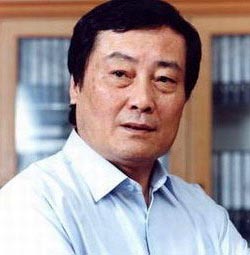Zong Qinghou
 |
|
Zong Qinghou |
Zong Qinghou realizes the dream of selling his products to 1.3 billion Chinese people. Each Chinese buys about 10 bottles of Wahaha on average, the beverage produced by Zong's company, which earned 10 billion yuan (US$1.46 billion) in 2003. In the process, Wahaha has become the fourth largest beverage company behind only international giants Coca Cola, Pepsi and Cadbury.
Though not well educated, Zong possesses long term business acumen. He thought using international capital would be the best way to build a world-level enterprise. Hence, Zong sold 51 percent of the stock of his five most profitable plants to Danone and BNP Paribas Peregrine.
Zong insisted on holding on to the leadership of the joint ventures. He kept the brand name, the title of president, and ensured that the pensions of retired workers and positions of employees older than 45 be protected.
Zong can be described as the most diligent Chinese entrepreneur because he spends 200 days a year in the market. His hard work can be traced back to his poor early life. Zong was a salesman in a school-affiliated plant in Hangzhou from 1978 when he was 33 years old; in 1987, he contracted for its sales department in 1987.
Zong found that children lost appetite after eating too many snacks and the idea of producing a digestion beverage came to his mind. His Wahaha digestion milk came out in 1988 and gained wide popularity across the country. A few years later Zong began to produce purified bottled water and achieved great success.
Whenever somebody asked him what enabled him to survive the eight years of cooperation with Danone, he would say: "The key is whether you can make money. All investments want to be repaid. If you can make more money than the investor himself, he'll surely leave you to handle the business."
Zong was elected as a deputy to both the 10th and 11th National People's Congress. He says: "I'm chosen by my people and ought to make their voices heard."
Referring to China's livelihood, Zong proposed to expand domestic demand by distributing more money to the people. He suggested allocating shopping vouchers, which had been adopted by some city governments. He also thought that, in the long term, a stable society needed a large middle class and raising the personal income tax threshold would promote social and economic development.
Zong not only submitted proposals but also took action. As the latest international financial crisis forced quite a few companies to lay off employers and shut down production line, Zong's company hired a lot of people. Wahaha invested 6 billion yuan (US$878 million) to build 90 new production lines and gave jobs to 7,000 people.
Zong also established Fuli Charitable Fund in Zhejiang Province to support poor college students and volunteer organizations.
 0
0 







Go to Forum >>0 Comments